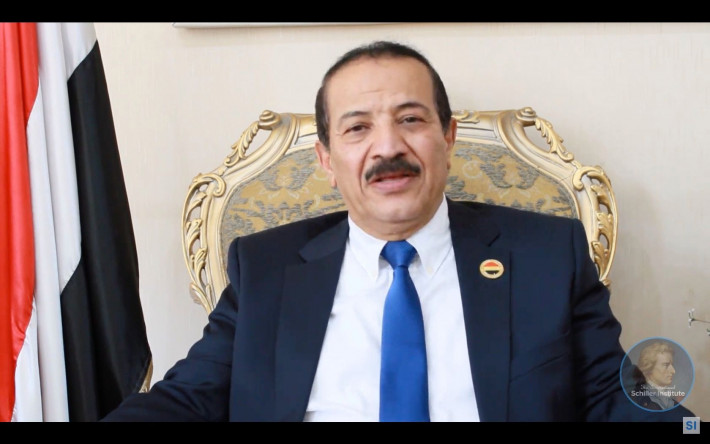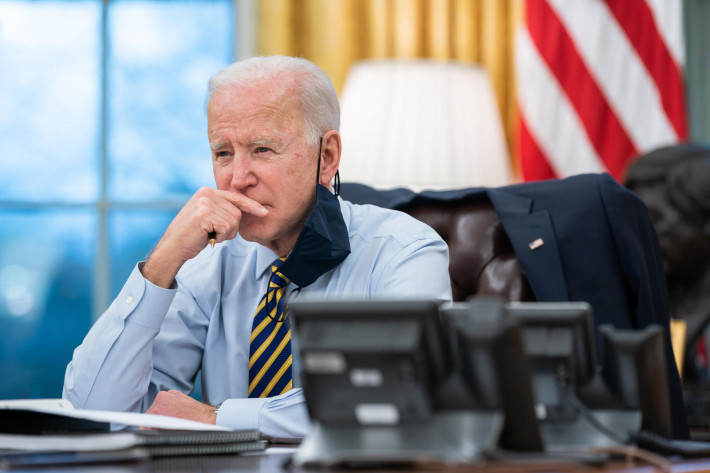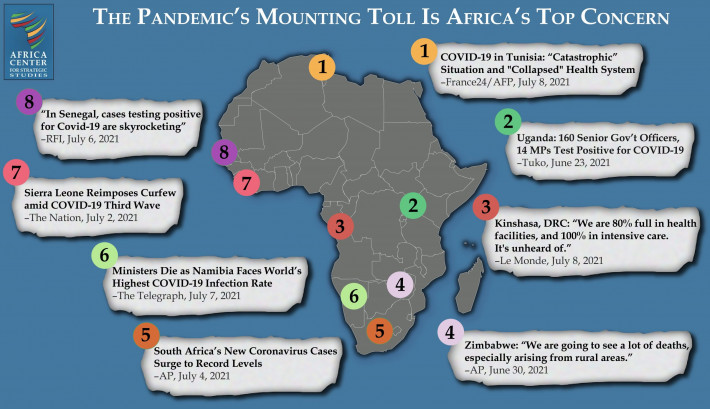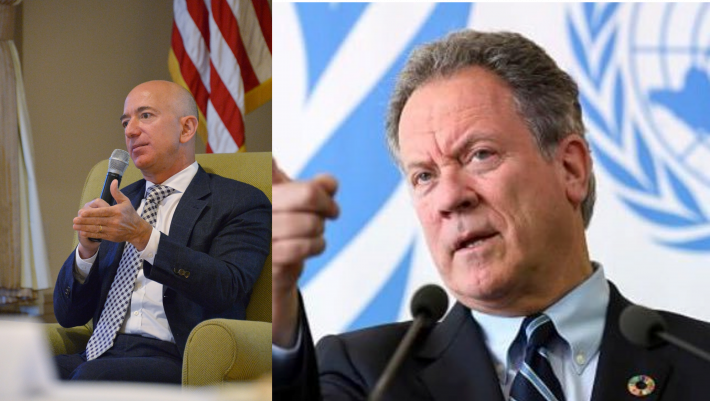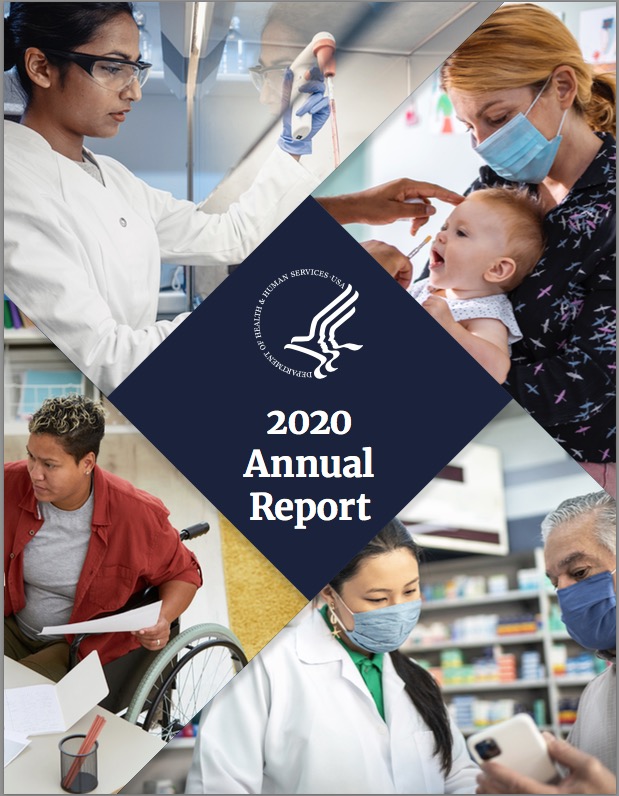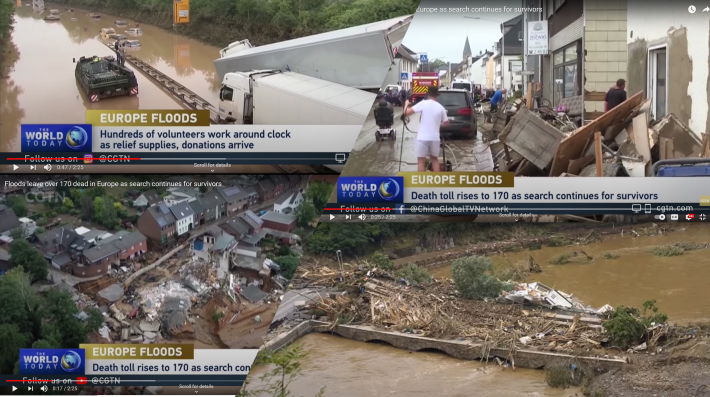July 31 (EIRNS)–Today the Schiller Institute brought together in a five-hour intense discussion at an international virtual conference, diplomats and experts from many nations, including Afghanistan, Russia, China, Pakistan, the United States, Italy and others, on the theme: “Afghanistan: A Turning Point in History After the Failed Regime-Change Era.”
Helga Zepp-LaRouche (Germany,) Chairwoman and founder of the Schiller Institute, who has been leading a process of institutional and informal dialogue for the past 18 months, said at the conclusion of today’s event, that we now “have a perspective of where to go.” The priority is “to put development on the table, which will be difficult to refuse” by anyone, and to give all the support possible to make it happen. The last speaker of the day, Hussein Askary (Sweden/Iraq,) Southwest Asia Coordinator for the Schiller Institute, put it forcefully, that we must “make development the first item” in any talks, not the last. He warned, “Keep the warlords and the British out!” Askary’s presentation, which covered concrete aspects of development, was titled, “Put Afghanistan on the Belt and Road to Peace.”
The event was opened by Moderator Dennis Speed (U.S.A.), who said that the deliberations would change the usual conception of war or peace, to partake of the diplomacy of formulating policies for mutual understanding and development. He introduced a short 1985 video by statesman-economist Lyndon LaRouche making the point, with reference to President Abraham Lincoln’s record, that the power of infrastructure transforms an economy. Zepp-LaRouche’s opening remarks stressed that we are at a special moment in history, where geopolitical confrontation must be ended, and a new paradigm begun—not only for Eurasian integration and prosperity, but for universal history. She showed the beautiful “Golden Mask” artifact, to make the point of the 5,000-year history of the Central Asian region.
Playing a lead role in the discussion from beginning to end was Professor Pino Arlacchi (Italy), who participated from Italy. Currently Sociology Professor at the Sassari University, he was Executive Director of the UN Office for Drug Control and Crime Prevention (1997-2002,) and former European Parliament Rapporteur on Afghanistan. He spoke on, “Eradicate Opium in Afghanistan, Develop Modern Agriculture, Build the Nation, Now.” He described his original plan which by 2001 had nearly eliminated opium poppy growing in Afghanistan, which then was reversed under the ensuing years from 2001 of U.S. and NATO military operations. Arlacchi again proposed a plan in 2010, which was thwarted by the EU, Britain and the U.S. Today, Afghanistan is the source of over 80% of the world’s opium drugs. Arlacchi laid out what can and must be done today. The needed approach uses alternative agriculture—supporting farmers to switch to other crops, and similar realistic methods. Arlacchi stressed how relatively inexpensive this is, given the huge leverage by the drug cartels. Farmers in Afghanistan might get $300 to 350 million for their opium crop, which then is worth $20 billion to organized crime in Europe. There are many alternative crops of great use and value, for example saffron.
The diplomats presented a sweeping picture of the present situation. Ambassador Hassan Shoroosh (Afghanistan), the Afghanistan ambassador to Canada, spoke from Ottawa, saying that there is a “new chapter of partnership” ahead, which must be worked out. His talk was, “The Way Forward for Afghanistan.” He said that his country is “positioned to serve as a land-bridge” in Eurasia, and reviewed in detail various transportation corridors, from the Lapis Lazuli Corridor, to the Five Nations Railway route.
Ambassador Anna Evstigneeva (Russia,) from the New York City, where she is Deputy Permanent Representative at the Mission of the Russian Federation to the UN. Her presentation was titled, “Russia’s Outlook for Afghanistan and Eurasia.” She stressed that the goal is stability, and there is no military solution. There are important frameworks among the neighbors in the region, including the CSTO and SCO and bilateral relations. There is a special role for the “extended troika,” which has been in place for many years. There are meetings coming up in the near future. She noted that transport and infrastructure are of great significance.
Dr. Wang Jin (China,) Fellow at The Charhar Institute, spoke on the topic, “Afghanistan and the Belt and Road Initiative.” He presented four key aspects of China’s concerns: 1) that there are no “spillover” impacts of instability; 2) that there is a future of advancement for Afghanistan; 3) that extremism and terrorism do not gain ground; and 4) that China and Afghanistan have positive ties.
From Pakistan, Mr. Hassan Daud spoke. He is the CEO of Khyber Pakhtunkhwa Province Board of Investment. He pointed out that Afghanistan is one of “the least integrated” economically in the Central and South Asian region, after these decades of strife. He spoke of the great “economic spillover” that will ensure, with Pakistan leveraging its position and resources to become a logistical hub, and extending benefits to Afghanistan through CPEC and the BRI. We must have “the spirit of the ancient Silk Road” again. He called for more seminars on this, involving scholars, chambers of commerce and others.
From the United States, Ray McGovern spoke. He is a former analyst at the U.S. Central Intelligence Agency, co-founder of the Veteran Intelligence Professionals for Sanity. Addressing the topic, “The Real Interest of the United States in Asia,” he made many strong points, including that there must be “accountability” for the string of commanders who lied about what the U.S. was doing in Afghanistan, also in Iraq and elsewhere. He dramatically pointed out, that there weren’t even competent “situation estimates” that should have been done, about terrain, weather, LOC—lines of communication, and other standard assessments of what the U.S. is doing in places. In 2010, the U.S. Navy logistics was paying $400 a gallon to put gas in the tanks of military vehicles in Afghanistan! He hit hard at the racism involved in presuming you can do anything, anywhere; he quoted Kipling.
Many others were involved in the two question and answer periods, with important exchanges over key topics. For example, Earl Rasmussen, Vice President of the Eurasian Society, raised the point of the necessity to build trust. Dr. Stephen Fischer, an American physician, reported on a year he spent in public health in Afghanistan, working with a provincial reconstruction team. Zepp-LaRouche stressed many times, that in the context of the prolonged pandemic, it is imperative that we move in Afghanistan, and everywhere, for public health and modern medical care infrastructure.
Ambassador Anna Evstigneeva made a concluding point, that it is “important to rise above geopolitics.” She said that in Russia, “at all levels, including President Putin,” we are ready for cooperation.” Helga Zepp-LaRouche called on the panelists, and anyone in the viewing audience, to contribute to the development program perspective under discussion, and mobilize. Prof. Arlacchi, who has a new book out, Against Fear (in Italian,) gave parting words that, “peace is stronger than war. Let’s be more courageous. Not a victim of huge deceptions.” The full conference is archived for viewing. Now is the time to join the Schiller Institute.
Schiller Institute International Conference – July 31, 2021
Afghanistan: A Turning Point in History
After the Failed Regime-Change Era
Moderator: Dennis Speed (U.S.), The Schiller Institute
Helga Zepp-LaRouche (Germany), Founder and President of The Schiller Institute
Keynote Address: “Afghanistan: The Bright Future for the Coming Cooperation of the Great Powers”
Pino Arlacchi (Italy), Sociology Professor at the Sassari University, Former Executive Director of the UN Office for Drug Control and Crime Prevention, and former European Parliament Rapporteur on Afghanistan
“Eradicate Opium in Afghanistan, Develop Modern Agriculture, Build the Nation, Now”
H.E. Ambassador Hassan Shoroosh (Afghanistan), Ambassador of the Islamic Republic of Afghanistan to Canada
“The Way Forward for Afghanistan”
H.E. Ambassador Anna Evstigneeva (Russian Federation), Deputy Permanent Representative at the Mission of The Russian Federation to the UN “Russia’s Outlook for Afghanistan and Eurasia”
Dr. Wang Jin (China), Fellow with The Charhar Institute
“Afghanistan and the Belt and Road Initiative”
Question and Answer Session
Ray McGovern (U.S.), Analyst, Central Intelligence Agency (CIA-ret.), Co-Founder, Veteran Intelligence Professionals for Sanity (VIPS)
“The Real Interest of the United States in Asia”
Hassan Daud (Pakistan), CEO, Khyber Pakhtunkhwa Province Board of Investment
“The Perspective from Pakistan: The Role of the Belt and Road Initiative (BRI) for Afghanistan Reconstruction.”
Hussein Askary (Sweden/Iraq), Southwest Asia Coordinator for the Schiller Institute
“Put Afghanistan on the Belt and Road to Peace!”
Discussion Period
We welcome questions during the conference. Please send them to questions@schillerinstitute.org
Supplementary material by Executive Intelligence Review (EIR)—Special Report Offprint: ‘Will Afghanistan Trigger a Paradigm Change?’
“After the hasty withdrawal of U.S. and NATO troops from Afghanistan—U.S. troops, except for a few security forces, were flown out in the dark of night without informing Afghan allies—this country has become, for the moment but likely not for long, the theater of world history.”
—Helga Zepp-LaRouche, July 10, 2021
We face an extraordinary moment, of further descent into chaos, or the beautiful potential of Afghanistan becoming the seed-crystal of a new era of international cooperation so desperately needed in the wake of growing disease and famine worldwide.
Afghanistan was once a hub for the ancient Silk Road, the connection between the great cultures of Asia and those of the European side of the Eurasian continent. The entire Central Asian region was once known as “a land of 1,000 cities”, showcasing advanced technologies in oasis cities, including Merv, Balkh, Kabul, and Kandahar, with large-scale underground irrigation systems. Water development will once again be crucial, and the agricultural potential is great.
In the past weeks, most of Afghanistan’s neighbors have come together, in an attempt to forge a commitment to end the nightmare suffered by the people of Afghanistan, a nightmare also suffered by the military forces of many nations drawn into needless combat in the service of a British-centered oligarchy fostering the growth of drug trafficking and terrorism in the entire region.
Just as the collapse of the Soviet Union marked the end of an era—the division of the world into nuclear armed blocs hostile to one another—so also the utter failure of the 20-year misadventure of the United States and NATO in Afghanistan, and in the other failed colonial wars in Southwest Asia, poses the question: Can the great nations of the world cooperate in the transformation of Afghanistan, and the other war-torn nations, into modern economies, participating in co-operative development through the New Silk Road process, exemplified by China’s Belt and Road Initiative?
Leading voices, from veterans’ groups and whistleblowers, to experts on the danger of global narcotics plague and on international political relations, will join Helga Zepp-LaRouche in dialogue, to impel the United States and Europe to join the growing international cooperation that is coming together. We can use this opportunity to make the turn from 50 years of failed policies, and instead to embark on the path required to achieve a new paradigm for mankind.
Mar. 22 (EIRNS)–Africa needs “global solidarity and vaccine justice,” were the words of African Development Bank (AfDB) President Dr. Akinwumi Adesina on Friday, March 19. Adesina launched the Bank’s {African Economic Outlook 2021} report, and decried the economic effects that the lack of Covid-19 vaccines was having on Africa. The connection of global health with global economic recovery was paramount. With Adesina was economist and Nobel laureate (2001) Joseph Stiglitz, who in addition to endorsing an increased “healthcare defense,” for the continent, also endorsed the idea of “debt restructuring,” a topic first raised by his African host.
The AfDB president implicitly addressed the idea of global health, saying that “as long as Africans remain unvaccinated, the world will go right back to square one,” something no amount of imperial ‘vaccine passports’ could prevent. “Africa needs to develop its pharmaceutical industry and begin manufacturing,” he said, adding that “the African Development Bank is going to support African countries to do this.”
Supporting this position, Stiglitz said, “One of the things that some of us have been campaigning for is the suspension of the intellectual property rights related to Covid-19 because {the supply constraint that you describe is at least, to some extent, artificial}… If access to the intellectual property rights were more extensive, there is throughout the emerging markets and developing countries considerable capacity to produce a lot of more vaccines.” [emphasis added]
Speaking of the debt, Stiglitz noted that “every country has bankruptcy laws, but there’s no bankruptcy law for international debt…. When there’s too much debt, it’s as much the creditor’s problem as the debtor’s problem.” Stiglitz said the G20 debt postponement took place when it seemed the pandemic might only last a few months. “Now … a standstill is not enough.”
He added that it was in the self-interest of advanced countries to make sure that everybody has access to the vaccine and other related medicines. “The longer the disease festers in any part of the world, it can mutate, and one of the things we know is that those mutations are not going to respect borders. The Covid-19 virus doesn’t carry a passport.”
Other notable African voices that have called for “vaccine justice” for Africa are those of South African President and recent African Union chair Cyril Ramaphosa, WHO Director General Tedros Adhanom Ghebreyesus, and Director of the Africa Centers for Disease Control and Prevention, Dr. John Nkengasong.
Mar. 22 (EIRNS)–An article in the Yemeni News Service Hodhod has a summary of the statement by His Excellency Eng. Hisham Sharaf to the Schiller Institute Conference March 20-21, 2021, “The World at A Crossroad: Two Months into the New Biden Administration”. It mentions the part where he states that Yemen intends to join and work within the framework of the New Silk Road. “Yemen will work its best within the umbrella of the Silk Road to become a successful and active element in the Silk Road Initiative”.
Read the article: “Foreign Minister of Yemen speaks during international conference.”
Russian Response to Biden Won’t End with Recall of Ambassador
March 18, 2021 (EIRNS)–Following President Biden calling President Putin a “killer” in a set up by CNN, Russian Ambassador to the United States Anatoly Antonov has been recalled to Moscow, and will leave Washington on March 20, according to a statement by the Russian Embassy. The statement added: “The current situation stems from Washington’s deliberate policy. As a matter of fact, Washington has been deliberately driving bilateral cooperation to a dead end in the recent years. The U.S. administration’s non-constructive policy towards our country is in the interest of neither Russia nor the United States and certain reckless statements of U.S. senior officials pose a threat of utter collapse to bilateral relations, which are already excessively confrontational.”
Russian Foreign Ministry Spokeswoman Maria Zakharova told the Soloviev Live YouTube channel on Thursday that Antonov will stay in Russia for consultations for as long as it takes.
“The consultations will take place not only in the Foreign Ministry, but also in various government agencies. How long will it take? Exactly as long as the consultations themselves will take,” she said.
Deputy Speaker of the Russian Federation Council (the upper house of parliament) Konstantin Kosachev commented on Biden‘s statement on Facebook on Thursday: “Such remarks cannot be tolerated under any circumstances and will inevitably raise tensions between our countries. The recall of the Russian ambassador to the U.S. for consultations is a prompt, adequate and the only sensible response in such a situation. I suspect that if the U.S. fails to provide an explanation and apology, it won’t end there,” the senator pointed out.
“This is a fault line. These boorish remarks have killed off all expectations that the new U.S. administration will pursue a new policy towards Russia,” Kosachev noted. According to him, “evaluations like these from a statesman of such a high rank are generally unacceptable.” The Russian senator stressed that the remarks had come from the president of the country “that drops a bomb somewhere in the world every 12 minutes, according to expert estimates. As a result, the deaths of more than 500,000 people have been linked to U.S. actions since 2001. Could you comment on that, Mr. Biden?” Kosachev said.
Dmitry Medvedev, deputy chairman of the Russian Security Council, referred directly to the current state of Biden’s mind. “I met with incumbent U.S. President Joe Biden at various international events,” Medvedev pointed out, reported TASS. “He gave the impression of a reasonable person then,” he added. “However, it seems that time hasn’t been kind to him,” Medvedev said, declining to give further comment. “I can only quote Freud: ‘Nothing in life is more expensive than illness and stupidity.’”
July 27, 2021 (EIRNS)—On July 9 the Africa Center for Strategic Studies warned, “The surge of the Delta coronavirus variant in Africa is set to cause hundreds of thousands of deaths in the coming months, absent a dramatic scaling up of prevention measures and COVID vaccine access.” Now just 18 days later, the North, South, and East of Africa have exploded with new COVID cases. The latest infographic from the Africa Center dated July 12, shows total known confirmed cases of COVID in Africa at 5,984,845 since the beginning of the pandemic. View the time-lapsed map here.
At the time of the July 9 Africa Center report “26 African countries [had] seen their confirmed COVID-19 case[s] jump by approximately 50%” in June compared to May. Then, in the first week of July, 5,600 people across Africa died from COVID, a 43% increase from the week before. Overall, the Center noted, “There has been a near tripling in the number of COVID cases and 30,000 fatalities on the continent since the end of April when the Delta variant emerged in Uganda.” By mid-July the Delta variant was found in 22 of 54 African countries, countries with inadequate healthcare platforms and access to vaccines—criminally, a mere one percent of Africans have been vaccinated.
A change-in-fatalities table, by the Africa CDC, compared death-rate increases May 8-June 7 to June 7-July 7, showing that 16 African countries had a 450% to 4,303% rise in COVID deaths, while six African countries had a 100% to 397% rise in COVID deaths. The table is here.
Now, July 27, an International Rescue Committee press release reads, “From Asia to Africa to Latin America, countries are suffering from record COVID-19 caseloads and deaths, … The Delta variant is leading to a spike in cases in crisis-affected countries. In the month to July 25th, there has been a significant increase in cases in Zimbabwe (116%), Thailand (110%), Myanmar (78%), Liberia (60%), Bangladesh (33%) and Afghanistan (29%), and concerning test positivity rates in Mexico (37%), Iraq (22%), Colombia (22%), Zimbabwe (20%) and Democratic Republic of Congo (17%).”
Echoing Helga Zepp-LaRouche’s call for new healthcare platforms in every country, and Dr. Joycelyn Elders’ insistence that public health measures are urgently needed, the Africa CDC July 9 report concluded that need is clear to “ramp up vaccine access to avert a humanitarian calamity” and, since “Africa does not have the hospital infrastructure to rely on …. Prevention, relying on public health principles, remains the indispensable priority.”
July 24 (EIRNS)–David Beasley, Executive Director of the World Food Program, tweeted on July 20, on the day billionaire Jeff Bezos took a ride into space and back:
“To @JeffBezos, @blueorigin, tremendous congratulations today! I can only imagine how incredible it was to see OUR planet from above. We’re all ONE human race. The sky is no longer the limit!! Now, let’s go end hunger together! Earth needs you!!
…you have proven over and over that anything is possible when you set your heart and mind to it. As you saw from space, Earth is a special place. 41 million people are on the brink of famine. I need your help. We need your help. Together, I know we can! #SpaceForBoth”
July 24 (EIRNS) — Moscow-based American foreign affairs expert Andrew Korybko writes on his blog on the website of the Russian International Affairs Council (RIAC), that the ongoing settlement of the Afghanistan war is putting “geo-economics” ahead of the zero-sum game of geopolitics. He writes that “geo-economics” is at the center of the cooperation among the U.S., Russia, China and Pakistan in seeking an Afghan settlement and the creation of the so-called “Quad” of Uzbekistan, Afghanistan, Pakistan and the United States which was created on July 16 at the connectivity conference in Tashkent, Uzbekistan. This latter, Korybko writes, “complements the prior such platform between the former two states, China and Tajikistan back in 2016 as well as the Pakistan-Afghanistan-Uzbekistan (PAKAFUZ) railway project that was agreed upon in February.”
Crucial to the development according to Korybko is Pakistan’s new “Geo-Economic Grand Strategy Is Multi-Alignment,” which was adopted during March’s inaugural Islamabad Security Dialogue, where it was announced that geo-economics will now constitute the basis for all policy formulation and not geopolitics. The first fruits of the policy was the creation of the so-called Quad platform among Pakistan, Afghanistan, Uzbekistan, and the U.S.
Korybko writes: “Pakistan is actively fulfilling its geostrategic destiny as the ‘Zipper of Eurasia’” by connecting a variety of stakeholders through their shared economic interests. “Islamabad is leveraging its influence in Afghanistan to advance the neighboring country’s peace process, which saw it facilitate Beijing and Moscow’s incipient ties with the Taliban. Upon these multipolar great powers establishing pragmatic political relations with the group, they were then able to seriously countenance the viability of trans-Afghan connectivity corridors. Russia is interested in reaching the Indian Ocean Region through PAKAFUZ (which can also unofficially be conceptualized as N-CPEC+), while China is pioneering the so-called “Persian Corridor” to Iran via Tajikistan and Afghanistan. The U.S., meanwhile, aims to use PAKAFUZ as a means for expanding its economic influence in the post-withdrawal Afghanistan and the Central Asian republics (CARs).”
As for India, it is finding itself left out of the process, he writes, because it is maintaining a geopolitical policy aimed at countering Pakistan. Nonetheless, he believes now India has begun to seriously reassess its policy away from geopolitical principles, which of course will require an improvement of relations with Pakistan. One option would be reversing the August 2019 abrogation of Article 370 which dismantled the autonomy of Jammu and Kashmir to bifurcate the region, which would admittedly be a very difficult political decision.
He concludes: “The very fact that the U.S., which is known for its geopolitically driven zero-sum policies, is joining together with Pakistan, Afghanistan and Uzbekistan in order to expand its economic influence in Central Asia speaks to just how dramatically everything is changing.”
U.S. Dept. of Health and Human Services Brags It Used Diplomatic Pressure To Stop Brazil from Approving Russia’s COVID Vaccine
March 16, 2021 (EIRNS) — The annual report of the HHS’s Office of Global Affairs stated that they had “used diplomatic relations in the Americas region” to stop Russian and Chinese “vaccine diplomacy” in the region “to the detriment of US safety and security.” In the report, signed by Trump’s HHS Secretary Aznar, they pat themselves on the back about for having successfully used “OGA’s Health Attaché office to persuade Brazil to reject the Russian COVID-19 vaccine.” When questioned by TASS today, the Biden HHS repeated their adherence to that approach with the standard sophistry: “The United States is a firm believer in the need for vaccines that meet the minimum clinical standards of efficacy.”
Russia’s {RT} covered the story as a “bombshell admission,” noting that Brazil is currently sinking into an uncontrolled COVID crisis with a very small percentage of the population vaccinated. The article cited an expert at Moscow’s Gamaleya Institute, which developed Russia’s Sputnik V vaccine, saying that “we believe countries should work together to save lives. Efforts to undermine the vaccines are unethical and are costing lives.”
China’s {Global Times} published an article by editor Wang Wenwen which also pointed to the HHS admission that it used diplomatic pressure “to force Brazil, one of the worst-hit countries in terms of the COVID-19 pandemic, to reject the Russian coronavirus vaccine Sputnik V.” The editorial more broadly attacked, saying that “the West’s indulgence and zeal of the Cold War era is being manifested by its politicization of vaccines. The US, in particular, is practicing its very selfishness in vaccine distributions and exploiting vaccines as a geopolitical weapon, which, consequently, is dividing the world into two camps — one represented by countries inoculated with Chinese and Russian vaccines and the other with US and European vaccines.”
Europe is publicly lined up with the United States, Wang noted, but, “What is even more ironic is that the EU publicly dismissed Russia’s global vaccine supply, but has been turning to Sputnik V shots behind the scenes, according to media reports. Clearly, the EU cannot afford the self-invented geopolitical game involving vaccines.”
China’s approach is different, Wang argued. “Being a major power, China’s offer of vaccines to other countries is out of responsibility and morality without political attachment. That is why many countries welcomed and defended Chinese vaccines. If China’s influence expands, it is a natural outcome… Just imagine, if the global supply of vaccines is monopolized by the US, how many more people would die? Does the US care? The answer is clear.”
July 22, 2021 (EIRNS)–The Trains.com website comments that portions of the rail network in Western Europe could be out of service for months or years in the wake of flooding that has left hundreds dead across a swath of western Germany and Belgium. Rail service has been suspended after the floods, which saw rivers running three yards higher than previous records in some cases and destroyed homes and businesses. See report here.
In Belgium, most rail lines south of Brussels saw disruption, with many in the hilly Ardennes region seriously damaged. The high-speed rail line connecting Brussels with Cologne in Germany was briefly closed, but as this goes through hills and over valleys, it was not seriously damaged. Services restarted over the weekend. The older rail lines that follow river valleys, often no more than a few yards above the river, fared much less well. Several routes are so badly damaged that reconstruction is expected to take until late August; less damaged routes reopened July 19.
In neighboring Germany, where the scale of destruction and loss of life has been greater, some rail lines, again built following river valleys, have been completely washed out. In total, German national railroad Deutsche Bahn has reported that 600 kilometers (more than 370 miles) of tracks and 80 stations are impassable.
The worst affected route along the valley of the Ahr River from Remagen to Ahrbrück has seen around 12.5 miles of its 18-mile length destroyed by flood water, with all seven bridges destroyed where the line crossed from one side of the river to the other.
In the Ruhr region, the main station in the city of Hagen was flooded and closed, along with rail lines through the city, as were those in the nearby city of Wuppertal. The flood waters knocked out power and telecom services in many areas. In the city of Bonn, the electronic signalling center controlling the main rail lines along the Rhine valley was unable to function, due to flood damage. Countries neighboring Germany have also seen flooding, with the south of the Netherlands hit with large-scale disruption to rail and road travel. As the weather system moved on, flood waters have affected Switzerland and by last weekend the rain had moved east to Bavaria in Germany and the neighboring Czech Republic, with the rail line between Dresden and Prague shut down July 18 as the Elbe River burst its banks. The Elbe alley was the scene of massive flooding in August 2002, which closed the rail line for three months.











